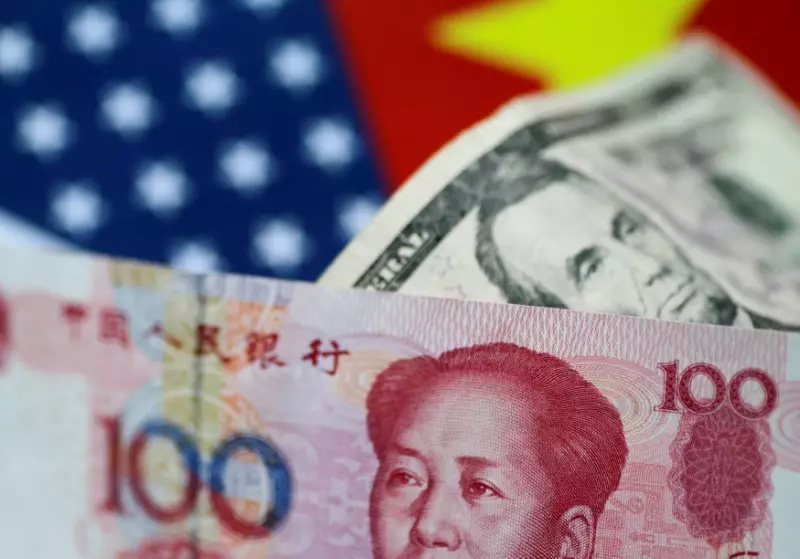As the political landscape evolves, particularly with significant events such as Donald Trump’s upcoming inauguration, the currency markets are poised for potential volatility. Many investors are keenly aware that political decisions can have immediate and far-reaching implications on both domestic and international currency valuations. An intriguing movement in the forex market amidst this political climate is that of the USD/CNY pair, with various financial institutions offering investment strategies to mitigate risk.
UBS, a prominent Swiss banking firm, has issued advice to its clients regarding the USD/CNY currency pair, suggesting a long position as a strategic hedge against political uncertainties. The bank’s analysts predict that Trump’s inaugural address may not immediately trigger significant policy shifts, particularly in terms of tariff implementation. Yet, the anticipation itself serves to heighten market focus on potential tariff escalations that might follow. The current positioning in the foreign exchange market does not fully account for substantial tariff increases, indicating a potential correction could ensue should significant economic policies take shape.
It’s crucial to recognize that the uptick in option volatility is not solely due to Trump’s inauguration. Instead, it encompasses a broader spectrum of divergent economic growth expectations across nations, alongside specific domestic challenges faced by countries like the UK and Canada. As uncertainties loom, such as the implementation of economic tariffs and shifting relations between major economies, traders may experience heightened volatility—both in actual and implied terms. The prevailing assumption is that negative developments could trigger larger swings in the currency markets, particularly affecting the USD/CNY currency pair.
As the USD/CNY exchange rate reaches notable highs, there is skepticism regarding the resilience of the Chinese yuan amidst potential policy implementations from the Trump administration. With expectations that China may face more intense scrutiny, any take on tariffs could prompt the People’s Bank of China (PBoC) to respond by allowing a further depreciation of the yuan. A weaker yuan could serve as a buffer against the negative effects of prospective tariffs, fostering some stability for export-driven growth but at the risk of escalating capital outflows.
As investors prepare for the uncertainties surrounding Trump’s inauguration and its implications for U.S.-China relations, UBS advocates a long position in USD/CNY with a target approach. The potential for a 2.1% annual carry alongside tactical stop-loss placements indicate a proactive strategy in navigating the unpredictable forex landscape. Investors must stay attuned to market dynamics, policy shifts, and geopolitical tensions that could reshape currency valuations in the coming months. A cautious yet informed approach is essential for making sound investment decisions in these turbulent times.

